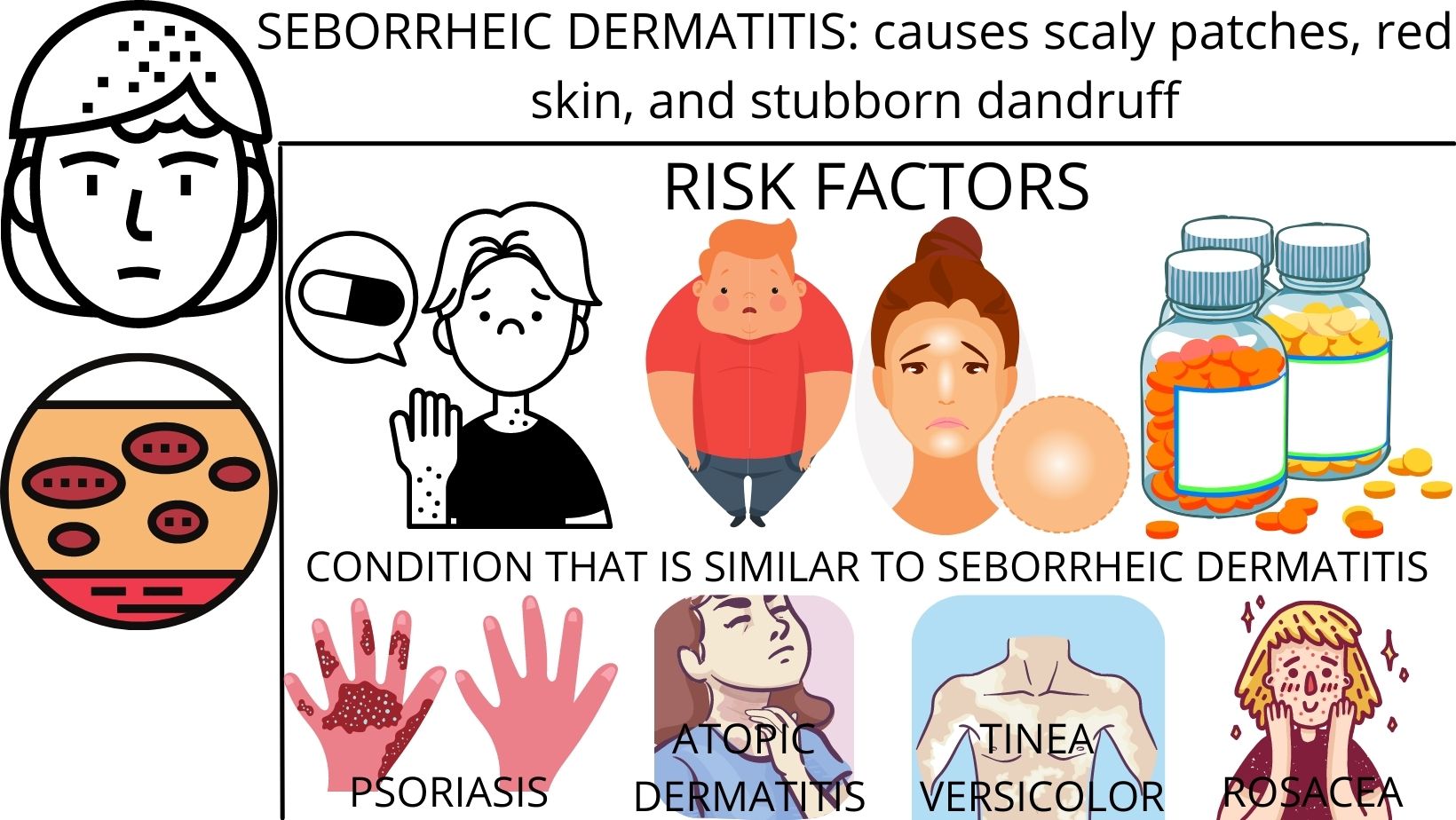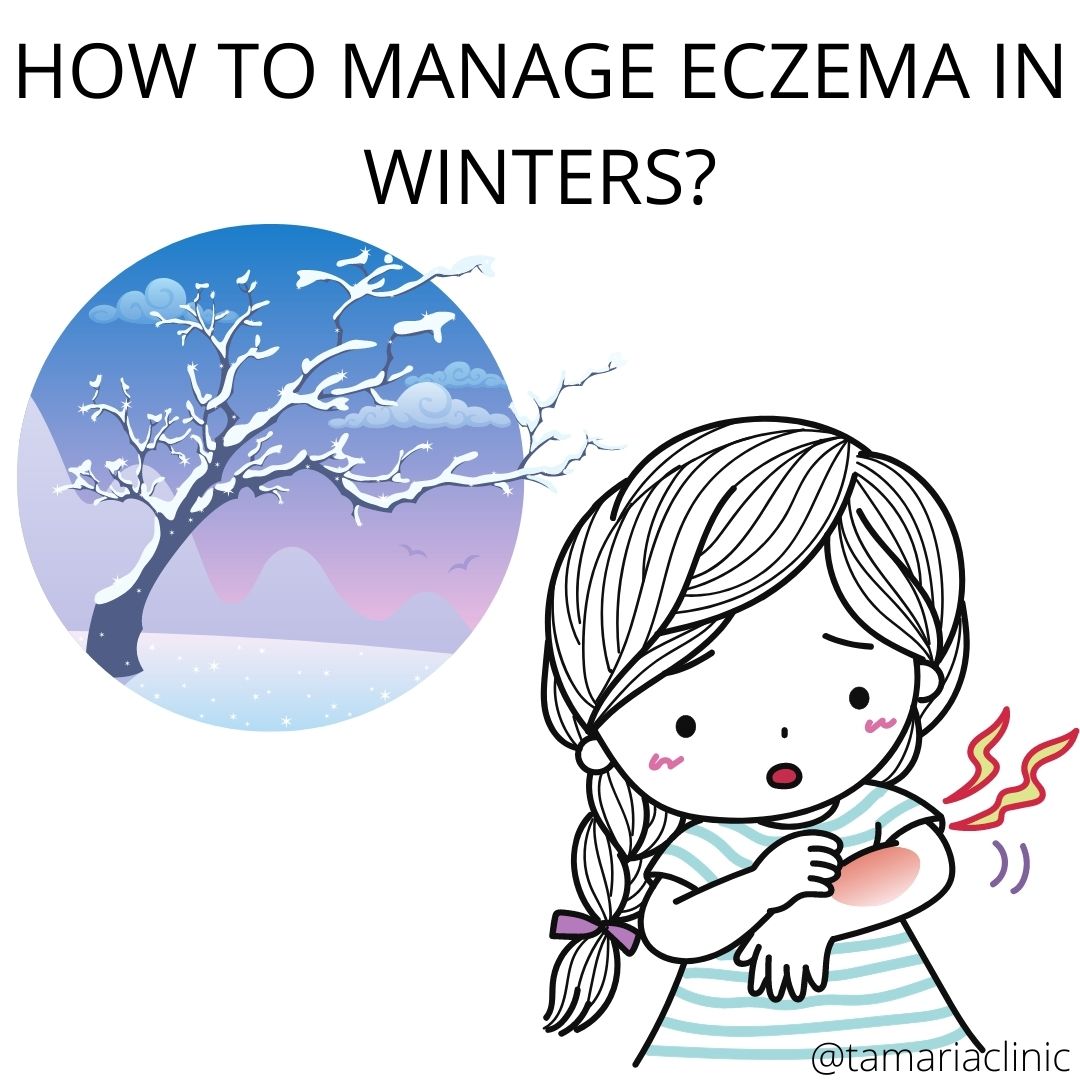THE DEFINITIVE GUIDE FOR THE TREATMENT OF SEBORRHEIC DERMATITIS
WHAT IS SEBORRHEIC DERMATITIS?
Seborrheic dermatitis is a typical skin condition that mostly affects your scalp. It causes scaly patches, red skin, and stubborn dandruff. Seborrheic dermatitis can also affect oily areas of the body, for example, the face, sides of the nose, eyebrows, ears, eyelids, and chest.
Seborrheic dermatitis is also called dandruff, seborrheic skin inflammation and seborrheic psoriasis. For infants, the condition is known as cradle cap and causes crusty, scaly patches on the scalp.
WHAT ARE THE RISK FACTORS FOR SEBORRHEIC DERMATITIS?
There are many risk factors that help in developing seborrheic dermatitis, such as
- Some neurologic and psychiatric conditions such as Parkinson's disease and depression.
- Those people who have low immunity or weak immune system, such as seen in organ transplant recipients and people with HIV/AIDS, alcoholic pancreatitis, and some cancers.
- Recovery from the stress full medical conditions, such as a heart attack.
- Some medication.
- Obesity
- Oily skin
- Fatigue
- Using Hair and skin products contain alcohol.
WHAT ARE THE SYMPTOMS OF SEBORRHEIC DERMATITIS?
This condition has symptoms like:
- Skin flakes (dandruff) on your scalp, hair, eyebrows, bread, or mustache.
- Redness of the skin
- Itching
- Patches of greasy skin covered with flakes white crust on the scalp, face, sides of the nose, eyebrows, ears, eyelids, chest, armpits, groin area, or under the breast.
 WHAT ARE THE CAUSES OF SEBORRHEIC DERMATITIS?
WHAT ARE THE CAUSES OF SEBORRHEIC DERMATITIS?
The exact cause of this condition is not known yet but it may be related to the condition which is given below
- A yeast ( fungus) called Malassezia is in the oil secretion on the skin.
- An irregular response of the immune system
ANOTHER CONDITION THAT IS SIMILAR TO SEBORRHEIC DERMATITIS
- PSORIASIS- This condition also has red skin and dandruff with flakes and scales but psoriasis usually has more scales, and they will silvery white.
- ATOPIC DERMATITIS- This skin reaction causes itchy, inflamed, skin in the folds of the elbows, on the backs of the knees, or on the front of the neck. It often recurs.
- TINEA VERSICOLOR-The rash of this condition appears on the trunk but usually isn’t red like seborrheic dermatitis.
- ROSACEA-This condition usually occurs on the face and has very little scaliness.
DIAGNOSIS OF SEBORRHEIC DERMATITIS
This condition is diagnosed by physical examination of the skin.
- Biopsy, scrape off your skin cells for the diagnosis, to rule out the above condition.
TREATMENT OF SEBORRHEIC DERMATITIS?
- Treatment depends on the severity of the symptoms.
- The treatment of seborrheic dermatitis focuses on loosening scale, reducing inflammation and swelling, and curbing itch.
- In mild cases -A topical antifungal cream or medicated shampoo( such as ketoconazole, selenium sulfide, coal tar, and zinc pyrithione) may be enough to control symptoms.
- In more severe cases - you may receive a prescription for mild corticosteroids.
MANAGEMENT OF SEBORRHEIC DERMATITIS?
The management of seborrheic dermatitis is
- Wash your skin regularly, always maintain skin hygiene.
- Apply coconut oil.
- Avoid styling products.
- Avoid skin and hair products that contain alcohol.
- Wear cotton clothes, also smooth textured clothes
- Avoid harsh soaps and detergents.
- Avoid scratching whenever possible
HOMEOPATHIC MANAGEMENT OF SEBORRHEIC DERMATITIS?
Homeopathic medicines for seborrheic dermatitis are very useful some medicine are Kali sulphuricum , thuja, graphite, natrum mur, phosphorus, petroleum depending on the case and symptoms. Only the constitutional approach can give a permanent cure.
DO'S & DON'TS
DO'S
- Maintain hygiene
- Wear cotton loose clothes
- Use coconut oil
- Keep yourself hydrated
DON'TS
- Don't use harsh soaps
- Don't scratch
- Avoid friction
- Avoid chemicals



Comments
We have received your comment , Thank You !